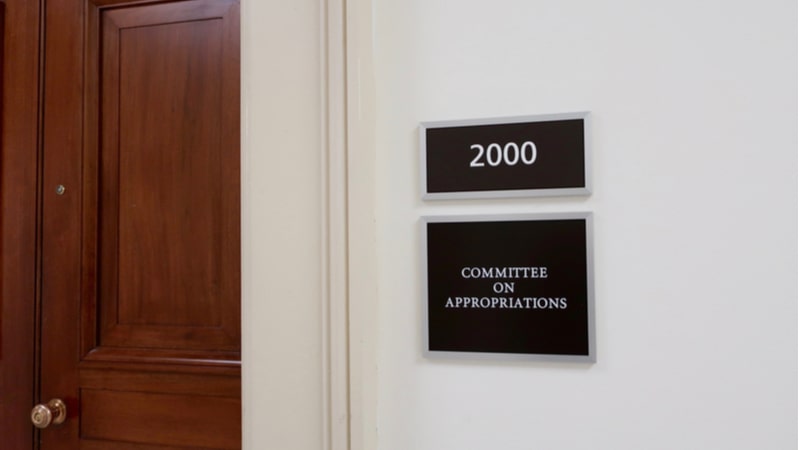
House Appropriations Committee members raised concerns at a March 4 hearing over the size of President Trump’s Fiscal Year 2021 budget request for the Department of Veterans Affairs (VA), with one calling it “irresponsible” and asking Secretary Robert Wilkie to justify the request.
In total, the President’s Budget Proposal requests $243.3 billion, a 10.2 percent increase from the Fiscal Year 2020 amount approved by Congress, for VA in FY2021.
Rep. Debbie Wasserman Schultz, D-Fla., said that VA’s request is a “fantasy budget” that would only work in an ideal world without budget caps. The budget increase that the VA is requesting, she added, is greater than the new funds available for all non-discretionary Federal increases.
“It is one thing to request additional funding for rising healthcare costs. It’s another completely fiscally irresponsible thing to request funding for new initiatives in a tight fiscal environment like the one we’re in,” she asserted.
Wilkie countered that VA’s budget proposal takes into account the “good realities” of agency progress and prioritization of veterans’ needs. The agency is offering more healthcare appointments than in prior years, seeing an increased satisfaction rate among veterans, and holding irresponsible leadership accountable. Wilkie said that more than 8,000 staff “at the highest levels of this department” have been released from the agency in recent years, and now the VA is rebuilding itself as “a bottom up organization.”
“We have just brought online a 5G hospital at Stanford in Palo Alto. There is nothing like that going on in the private sector. We are now using telehealth to get to more rural veterans than ever before,” Wilkie touted.
Wilkie also defended the electronic health records modernization (EHRm) delay at VA that Congress previously frowned upon.
“We are in the lead in a 21st century solution unprecedented in its scope,” he said of EHRm. “The budget that we requested keeps pace with this expansion as we roll this out for veterans. I will also say that the delay in the implementation of the training for the EHRm is a testament to the change at the VA. We have empowered our people at all levels to talk to us if they don’t believe something is ready to go.”
For some committee members, Wilkie’s justification was not enough. “We have incredible needs with existing programs, to include primarily the MISSION Act,” Rep. Ed Case, D-Hawaii, said. “Do you propose to fund these new programs and under-fund or substantially slash existing programs? Which way do you want it?”
In response, Wilkie came back to prioritizing the needs of veterans, and the substantial financial requirements involved in doing that.
“Obviously, veterans’ health is the be all and end all, making sure that when a veteran walks into our facilities that the health of that veteran is taken care of,” Wilkie said. “This department … has billions of dollars in backlog of payments that it has not made to our [880,000] private sector providers … That’s something that we are trying to catch up with.”
